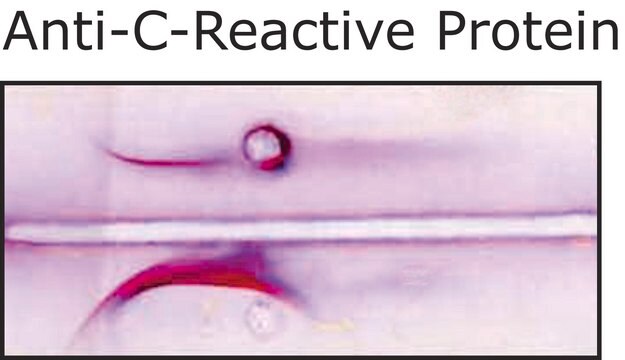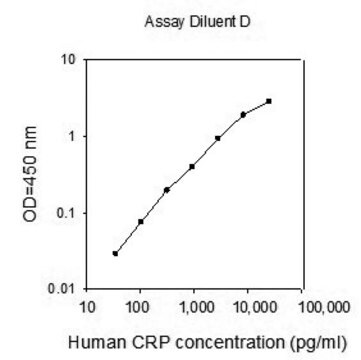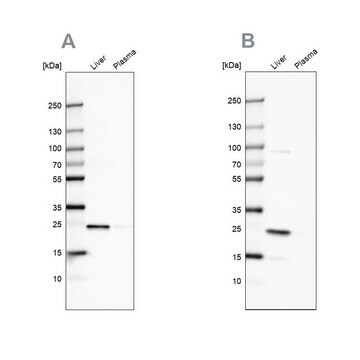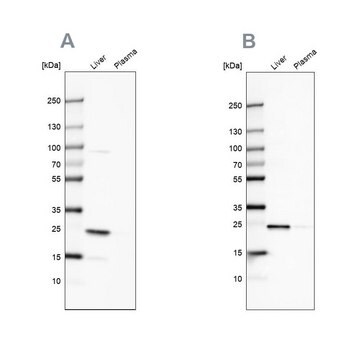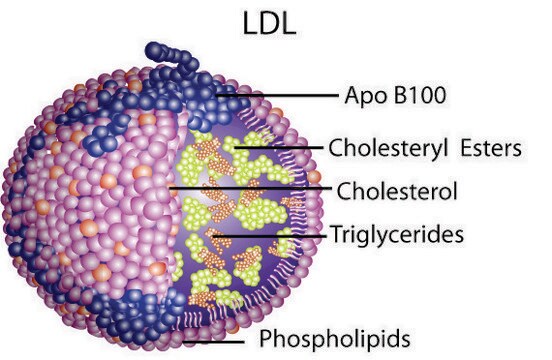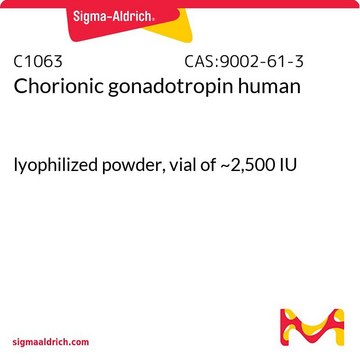SRP6267
C-reactive/CRP human
recombinant, expressed in HEK 293 cells, ≥95% (SDS-PAGE)
Synonyme(s) :
C-reactive protein, CRP, PTX1
About This Item
Produits recommandés
Source biologique
human
Produit recombinant
expressed in HEK 293 cells
Étiquette/Marqueur
6-His tagged (C-terminus)
Essai
≥95% (SDS-PAGE)
Forme
lyophilized powder
Poids mol.
calculated mol wt 24 kDa
observed mol wt 26 kDa (DTT-reduced. Phe17 is the predicted N-terminus.)
Conditionnement
pkg of 100 μg
Impuretés
<1 EU/μg endotoxin (LAL test)
Numéro d'accès UniProt
Conditions d'expédition
wet ice
Température de stockage
−20°C
Informations sur le gène
human ... CRP(1401)
Description générale
Actions biochimiques/physiologiques
Forme physique
Reconstitution
Code de la classe de stockage
11 - Combustible Solids
Classe de danger pour l'eau (WGK)
WGK 3
Point d'éclair (°F)
Not applicable
Point d'éclair (°C)
Not applicable
Faites votre choix parmi les versions les plus récentes :
Certificats d'analyse (COA)
Vous ne trouvez pas la bonne version ?
Si vous avez besoin d'une version particulière, vous pouvez rechercher un certificat spécifique par le numéro de lot.
Déjà en possession de ce produit ?
Retrouvez la documentation relative aux produits que vous avez récemment achetés dans la Bibliothèque de documents.
Les clients ont également consulté
Notre équipe de scientifiques dispose d'une expérience dans tous les secteurs de la recherche, notamment en sciences de la vie, science des matériaux, synthèse chimique, chromatographie, analyse et dans de nombreux autres domaines..
Contacter notre Service technique





